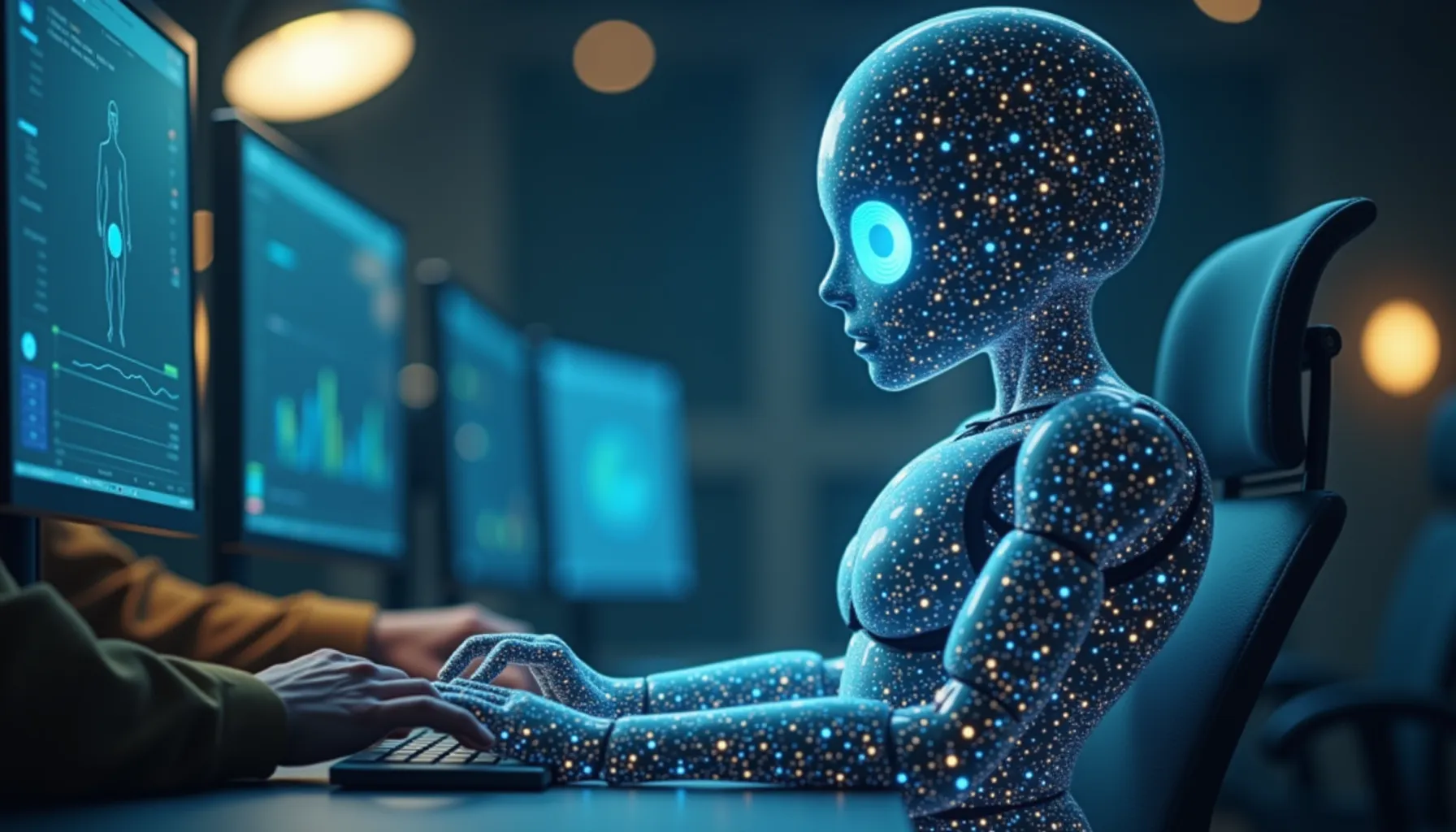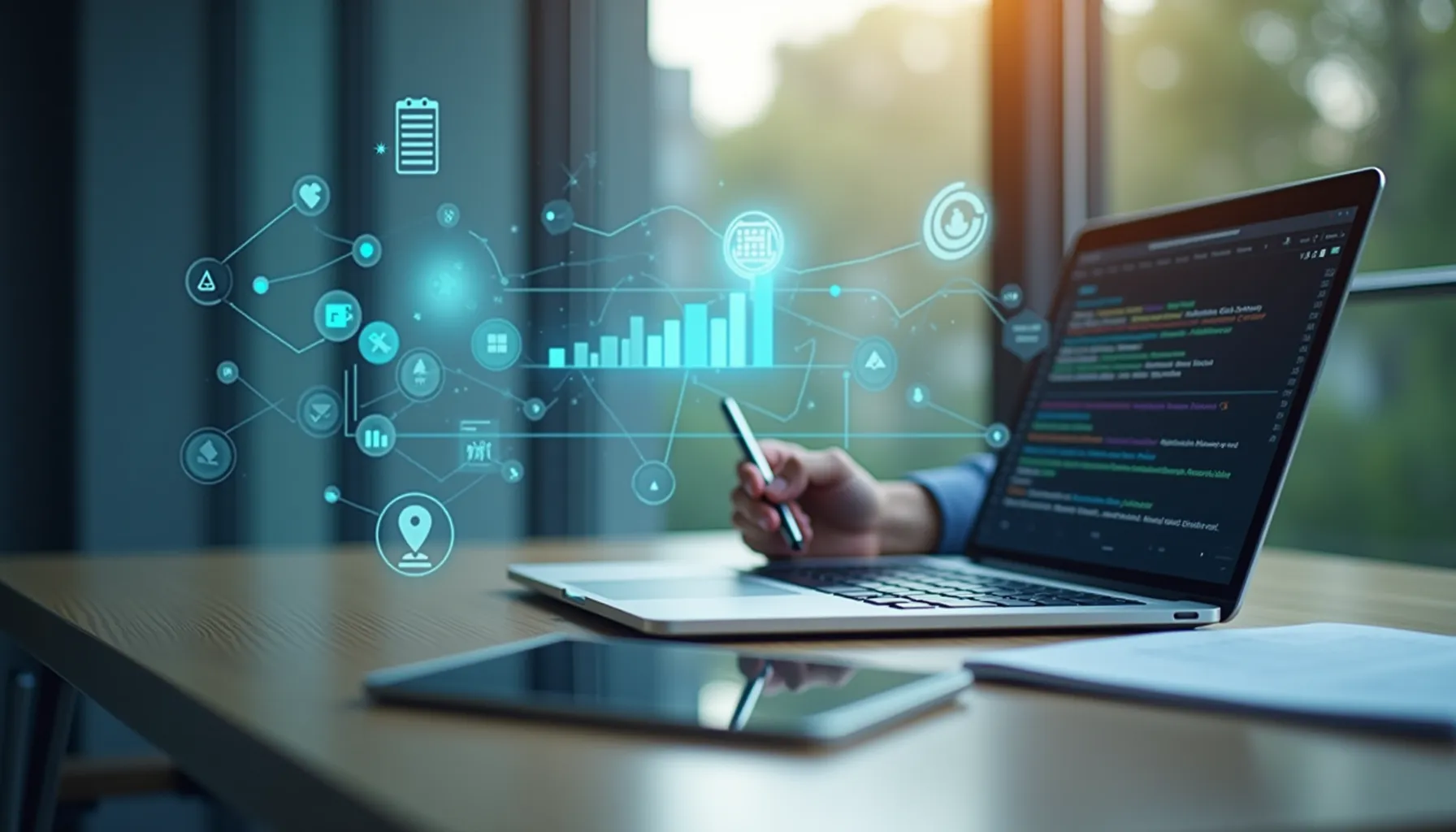Transform Your Workflow with AI Personal Assistant Software
-
Feb. 15, 2025
-
Mike Prot

In today's lightning-fast digital landscape, ai personal assistant software has transformed from a futuristic concept into an essential productivity powerhouse that's reshaping how we work, communicate, and manage our daily lives.
Gone are the days of drowning in endless to-do lists and struggling to juggle multiple tasks simultaneously. Modern AI assistants have emerged as intelligent, adaptive tools that understand our workflow, anticipate our needs, and dramatically streamline our professional and personal experiences.
Imagine having a digital companion that doesn't just respond to commands but learns your unique work patterns, suggests intelligent solutions, and helps you reclaim precious hours each week.
This isn't science fiction—it's the reality of today's AI personal assistant technologies, which are revolutionizing productivity across industries and personal contexts.
Key Takeaways
- AI Personal Assistant Fundamentals: Understand the core technologies driving intelligent task management
- Comparative Insights: Explore top software solutions and their unique capabilities
- Industry Applications: Discover how different sectors leverage AI assistants
- Privacy and Security: Learn critical considerations for data protection
- Future Trends: Gain insights into emerging AI assistant technologies

Understanding AI Personal Assistant Software
Modern AI personal assistant software represents a quantum leap in technological innovation, blending sophisticated algorithms with intuitive user experiences. These intelligent systems go far beyond simple task management, transforming how we interact with digital technologies.
At their core, these tools leverage cutting-edge technologies like natural language processing and machine learning to create deeply personalized digital experiences. They can interpret complex human commands, learn from user behaviors, and adapt in real-time to individual workflow preferences.
What Makes These Tools Intelligent?
The magic of AI personal assistant software lies in its ability to understand context and nuance. Natural language processing allows these tools to decode intricate human communication, translating spoken or written instructions into precise actions.
Machine learning algorithms continuously analyze user interactions, creating increasingly sophisticated predictive models. This means your AI assistant becomes smarter and more attuned to your specific needs with every interaction, almost like having a digital colleague who understands your unique work rhythm.
Core Technological Components
- Natural Language Processing (NLP): Enables human-like understanding of complex commands
- Machine Learning Algorithms: Allows continuous adaptation and personalization
- Contextual Intelligence: Interprets user intent beyond literal instructions
- Predictive Analytics: Anticipates user needs based on historical interactions
Evolution of Personal Assistant Technologies
The journey of AI personal assistants has been remarkable, transitioning from basic voice-activated commands to sophisticated, context-aware digital companions. Early iterations like Siri and Alexa paved the way for more advanced, specialized productivity tools.
Today's AI assistants represent a significant technological leap, integrating seamlessly across multiple platforms and offering unprecedented levels of personalization. They're no longer just reactive tools but proactive partners in managing complex professional and personal ecosystems.
Top AI Personal Assistant Software Compared
Professional Productivity Tools
The landscape of AI personal assistant software is rich with innovative solutions designed to address diverse professional needs. Tools like Motion, Reclaim.ai, and Clockwise have emerged as frontrunners, each offering unique approaches to productivity enhancement.
These platforms represent more than just scheduling tools—they're intelligent ecosystems that understand the intricate dynamics of modern work environments. By analyzing user patterns, managing time allocation, and providing strategic insights, they're redefining productivity paradigms.
Comparative Analysis
When evaluating AI personal assistant software, critical factors include integration capabilities, user experience, and adaptability. Each platform brings distinctive strengths to the table, catering to different professional requirements and workflow complexities.
The best solutions offer seamless cross-platform functionality, intuitive interfaces, and robust features that go beyond basic task management. They transform how professionals approach time management, turning potential chaos into structured, strategic productivity.
- Motion: Advanced project management and scheduling
- Reclaim.ai: Intelligent calendar optimization
- Clockwise: Focus time protection and meeting management
Key Differentiation Factors
Understanding the nuanced differences between AI personal assistant platforms is crucial for making informed decisions. Factors like pricing models, integration depth, and specialized features can significantly impact user experience and productivity outcomes.
While these tools share core AI-driven capabilities, their unique approaches to task management, scheduling, and workflow optimization set them apart. The right choice depends on individual or organizational specific needs and existing technological ecosystems.
Industry-Specific Applications
AI personal assistant software isn't a one-size-fits-all solution—it's a versatile technology transforming workflows across diverse professional landscapes. Each industry discovers unique ways to leverage these intelligent tools, turning potential complexity into streamlined efficiency.
Tailored Solutions for Different Sectors
Marketing teams harness AI assistants to coordinate complex campaign timelines, optimize resource allocation, and track intricate project dependencies. These tools become strategic partners, enabling teams to focus on creative strategies rather than getting bogged down in administrative tasks.
For remote workforces, AI personal assistants bridge communication gaps, synchronize distributed teams, and provide intelligent scheduling solutions that transcend traditional time management approaches. They're not just tools, but digital collaborators understanding nuanced workplace dynamics.
Sector-Specific Productivity Gains
- Marketing: Campaign coordination and resource optimization
- Remote Teams: Enhanced communication and scheduling
- Freelancers: Intelligent time tracking and project management
- Enterprise: Cross-departmental workflow integration
Real-World Use Cases
Freelancers especially benefit from AI personal assistant software, transforming chaotic independent work into structured, efficient operations. These tools help manage client interactions, track billable hours, and automate administrative processes that traditionally consume valuable productive time.
Enterprise environments leverage these technologies to create seamless interdepartmental workflows, breaking down communication silos and enabling more strategic, data-driven decision-making. The result is a more agile, responsive organizational ecosystem.
Privacy and Security Considerations
Data Protection Strategies
As AI personal assistant software becomes increasingly sophisticated, privacy emerges as a critical consideration. Users and organizations must carefully evaluate data handling practices, understanding how these intelligent systems collect, store, and utilize personal information.
The most advanced AI assistants prioritize local data storage, providing users with granular control over their digital footprint. Transparent policies and consent-driven mechanisms are no longer optional—they're fundamental expectations in the modern digital landscape.
Key Privacy Protection Elements
- Local Data Storage: Minimizing external data exposure
- User Consent Mechanisms: Transparent data usage policies
- Encryption Protocols: Advanced security measures
- Regular Security Audits: Continuous protection verification
Emerging Privacy Technologies
The future of AI personal assistant software is intrinsically linked to evolving privacy technologies. Advanced encryption methods, blockchain-inspired decentralization, and more granular user controls are reshaping how we think about data protection.
Machine learning algorithms are becoming more sophisticated in anonymizing and protecting user data, creating a future where personalization and privacy can coexist harmoniously. The goal is creating intelligent systems that respect individual digital sovereignty.

Navigating the Future: Your AI Assistant Roadmap
As we stand on the cusp of a technological revolution, AI personal assistant software represents more than just a tool—it's a fundamental reimagining of how we interact with digital ecosystems. The journey from reactive technology to proactive digital companion is no longer a distant dream but an unfolding reality.
Embracing these intelligent systems isn't about replacing human creativity, but amplifying our potential to achieve more meaningful work. The most successful professionals and organizations will be those who view AI assistants as strategic partners, understanding their nuanced capabilities beyond surface-level task management.
The rapid evolution of AI technologies demands a mindset of continuous learning and adaptation. What seems cutting-edge today will likely be considered standard tomorrow, making it crucial to remain curious, open-minded, and willing to explore emerging possibilities in personal productivity technologies.
Frequently Asked Questions
What exactly is AI personal assistant software?
AI personal assistant software represents intelligent digital tools that use machine learning and natural language processing to automate tasks, manage schedules, and provide personalized productivity support across various platforms and devices.
How secure are AI personal assistants with my data?
Top-tier AI personal assistant software prioritizes data privacy through local storage, advanced encryption protocols, transparent usage policies, and granular user control mechanisms. Always review specific platform privacy policies before implementation.
Can AI assistants work across different industries?
Absolutely. From marketing and remote work to freelance environments and enterprise settings, AI personal assistants offer customizable solutions that adapt to unique workflow requirements and organizational structures.
What should I consider when choosing an AI personal assistant?
Key considerations include integration capabilities, user experience, pricing models, specific feature sets, compatibility with existing technologies, and alignment with your personal or professional productivity goals.
Are AI personal assistants worth the investment?
For most professionals and teams, AI personal assistants provide significant returns through time savings, improved task management, reduced administrative overhead, and enhanced overall productivity across various work environments.


